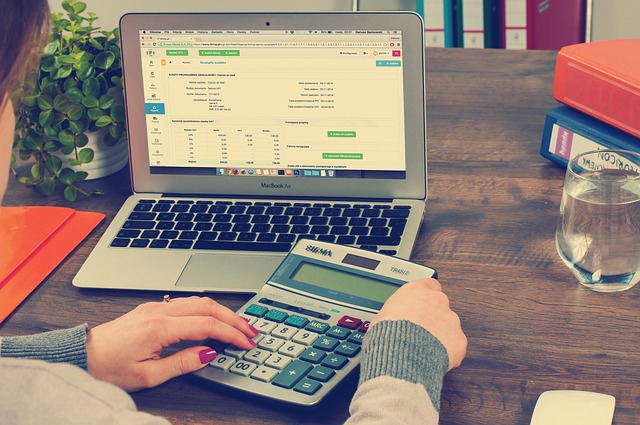Do I Need an Accountant as a Sole Trader in the UK?
Introduction
Starting a business as a sole trader in the UK is an exciting venture. It offers flexibility, simplicity, and the opportunity to be your own boss. However, with this independence comes the responsibility of managing your finances, including tax obligations, bookkeeping, and compliance with HMRC regulations. One of the most common questions that arise for sole traders is whether they need an accountant. This blog will explore the role of an accountant, the benefits and drawbacks of hiring one, and alternative options for managing your finances as a sole trader in the UK.
Understanding the Role of a Sole Trader
Before diving into whether you need an accountant, it’s essential to understand what it means to be a sole trader in the UK.
What is a Sole Trader?
A sole trader is an individual who runs their own business as a self-employed person. They are solely responsible for the business’s debts and obligations, and they keep all the profits after tax. Sole traders are required to register with HMRC, submit an annual Self Assessment tax return, and pay income tax and National Insurance contributions on their earnings.
Responsibilities of a Sole Trader
As a sole trader, you have several responsibilities, including:
- Registering with HMRC: You must register as self-employed with HMRC within three months of starting your business.
- Keeping Records: You need to maintain accurate records of your income and expenses.
- Filing Tax Returns: You must submit an annual Self Assessment tax return.
- Paying Taxes: You are responsible for paying income tax and National Insurance contributions.
- VAT Registration: If your turnover exceeds the VAT threshold (currently £85,000 as of 2023), you must register for VAT.
- Compliance: You must comply with all relevant laws and regulations, including those related to health and safety, data protection, and employment if you hire staff.
The Role of an Accountant
An accountant is a professional who specializes in managing financial records, preparing tax returns, and providing advice on financial matters. For sole traders, an accountant can offer a range of services, including:
- Bookkeeping: Maintaining accurate records of income and expenses.
- Tax Preparation: Preparing and filing your Self Assessment tax return.
- Tax Planning: Advising on tax-efficient strategies to minimize your tax liability.
- VAT Returns: Preparing and submitting VAT returns if you are VAT-registered.
- Payroll Services: Managing payroll if you have employees.
- Financial Advice: Providing guidance on business growth, cash flow management, and financial planning.
Do You Need an Accountant as a Sole Trader?
The decision to hire an accountant as a sole trader depends on several factors, including the complexity of your business, your financial knowledge, and your personal preferences. Let’s explore the pros and cons of hiring an accountant and alternative options for managing your finances.
Pros of Hiring an Accountant
- Time-Saving: Managing your finances can be time-consuming, especially if you’re not familiar with tax laws and regulations. An accountant can handle these tasks, allowing you to focus on running your business.
- Expertise: Accountants are trained professionals with in-depth knowledge of tax laws, financial regulations, and accounting practices. They can ensure that your financial records are accurate and compliant with HMRC requirements.
- Tax Efficiency: An accountant can help you identify tax deductions and reliefs that you may not be aware of, potentially saving you money on your tax bill.
- Avoiding Mistakes: Filing an incorrect tax return can result in penalties and interest charges. An accountant can help you avoid costly mistakes and ensure that your tax return is filed correctly and on time.
- Financial Planning: An accountant can provide valuable advice on financial planning, cash flow management, and business growth strategies.
- Peace of Mind: Knowing that your finances are in the hands of a professional can give you peace of mind and reduce stress.
Cons of Hiring an Accountant
- Cost: Hiring an accountant can be expensive, especially for small businesses with limited budgets. The cost of accounting services can vary depending on the complexity of your business and the level of service you require.
- Dependence: Relying on an accountant for all your financial needs can make you dependent on their services. If you decide to stop using an accountant, you may need to learn how to manage your finances on your own.
- Loss of Control: Some sole traders prefer to have full control over their finances and may feel uncomfortable delegating these tasks to an accountant.
- Not Always Necessary: If your business is relatively simple, with straightforward income and expenses, you may be able to manage your finances without the need for an accountant.
Alternative Options to Hiring an Accountant
If you decide that hiring an accountant is not the right choice for you, there are alternative options for managing your finances as a sole trader:
- DIY Accounting: You can choose to manage your finances on your own using accounting software or spreadsheets. There are many user-friendly accounting software options available, such as QuickBooks, Xero, and FreeAgent, which can help you keep track of your income and expenses, generate invoices, and prepare your tax return.
- Online Tax Services: There are online services that can help you prepare and file your Self Assessment tax return. These services often provide step-by-step guidance and can be more affordable than hiring an accountant.
- Bookkeeping Services: If you need help with bookkeeping but don’t want to hire a full-service accountant, you can consider hiring a bookkeeper. A bookkeeper can help you maintain accurate financial records, which you can then use to prepare your tax return.
- HMRC Resources: HMRC provides a range of resources and guidance for sole traders, including online tutorials, webinars, and helplines. These resources can help you understand your tax obligations and manage your finances.
- Accountant on a Needs Basis: You can hire an accountant on a needs basis, such as for tax planning or preparing your annual tax return, rather than using their services year-round. This can be a cost-effective way to access professional advice without the ongoing expense of hiring an accountant.
Factors to Consider When Deciding Whether to Hire an Accountant
When deciding whether to hire an accountant, consider the following factors:
- Complexity of Your Business: If your business has complex financial transactions, multiple income streams, or significant expenses, you may benefit from the expertise of an accountant.
- Your Financial Knowledge: If you have a good understanding of tax laws and accounting practices, you may be able to manage your finances on your own. However, if you’re unfamiliar with these areas, an accountant can provide valuable support.
- Time Constraints: If you have limited time to devote to managing your finances, hiring an accountant can save you time and allow you to focus on running your business.
- Budget: Consider your budget and whether you can afford the cost of hiring an accountant. If your business is small and your finances are straightforward, you may be able to manage without an accountant.
- Growth Plans: If you plan to grow your business, an accountant can provide valuable advice on financial planning, tax efficiency, and compliance with regulations.
- Risk Tolerance: If you’re comfortable taking on the responsibility of managing your finances and are confident in your ability to comply with HMRC requirements, you may not need an accountant. However, if you’re concerned about making mistakes or facing penalties, an accountant can provide peace of mind.
How to Choose an Accountant
If you decide to hire an accountant, it’s essential to choose the right one for your business. Here are some tips for selecting an accountant:
- Qualifications: Ensure that the accountant is qualified and registered with a professional body, such as the Association of Chartered Certified Accountants (ACCA) or the Institute of Chartered Accountants in England and Wales (ICAEW).
- Experience: Look for an accountant with experience working with sole traders and small businesses. They should be familiar with the specific challenges and requirements of your industry.
- Services Offered: Consider the range of services offered by the accountant. Do they provide the services you need, such as bookkeeping, tax preparation, and financial advice?
- Fees: Understand the accountant’s fee structure and ensure that it fits within your budget. Some accountants charge an hourly rate, while others offer fixed fees for specific services.
- Communication: Choose an accountant who communicates clearly and is responsive to your needs. You should feel comfortable asking questions and discussing your financial concerns.
- References: Ask for references or read reviews from other clients to get a sense of the accountant’s reputation and quality of service.
- Technology: Consider whether the accountant uses modern accounting software and technology. This can make it easier to share information and collaborate on your finances.
Managing Your Finances as a Sole Trader Without an Accountant
If you decide to manage your finances without an accountant, here are some tips to help you stay on top of your financial responsibilities:
- Keep Accurate Records: Maintain detailed records of all your income and expenses. This will make it easier to prepare your tax return and ensure that you claim all allowable deductions.
- Use Accounting Software: Consider using accounting software to help you manage your finances. Many software options are designed specifically for sole traders and can automate tasks such as invoicing, expense tracking, and tax calculations.
- Set Aside Money for Taxes: As a sole trader, you’re responsible for paying your own taxes. Set aside a portion of your income each month to cover your tax bill, so you’re not caught off guard when it’s time to pay.
- Stay Organized: Keep all your financial documents, such as receipts, invoices, and bank statements, organized and easily accessible. This will make it easier to prepare your tax return and respond to any inquiries from HMRC.
- Understand Your Tax Obligations: Familiarize yourself with your tax obligations, including income tax, National Insurance contributions, and VAT if applicable. HMRC provides guidance and resources to help you understand your responsibilities.
- File Your Tax Return on Time: Ensure that you file your Self Assessment tax return by the deadline (usually January 31st each year). Late filing can result in penalties and interest charges.
- Seek Help When Needed: If you’re unsure about any aspect of your finances, don’t hesitate to seek help. You can contact HMRC for guidance, use online tax services, or consult with an accountant on a needs basis.
Conclusion
The decision to hire an accountant as a sole trader in the UK depends on your individual circumstances, including the complexity of your business, your financial knowledge, and your personal preferences. While hiring an accountant can provide valuable expertise, save you time, and help you avoid costly mistakes, it may not be necessary for all sole traders, especially those with straightforward finances.
If you choose to manage your finances without an accountant, it’s essential to stay organized, keep accurate records, and understand your tax obligations. There are also alternative options, such as using accounting software, online tax services, or hiring a bookkeeper, that can help you manage your finances effectively.
Ultimately, the key is to find a solution that works best for you and your business. Whether you decide to hire an accountant or manage your finances on your own, staying on top of your financial responsibilities is crucial for the success and sustainability of your business as a sole trader in the UK.
This blog provides a comprehensive overview of the considerations involved in deciding whether to hire an accountant as a sole trader in the UK. By understanding your responsibilities, weighing the pros and cons, and exploring alternative options, you can make an informed decision that supports the financial health and growth of your business.

